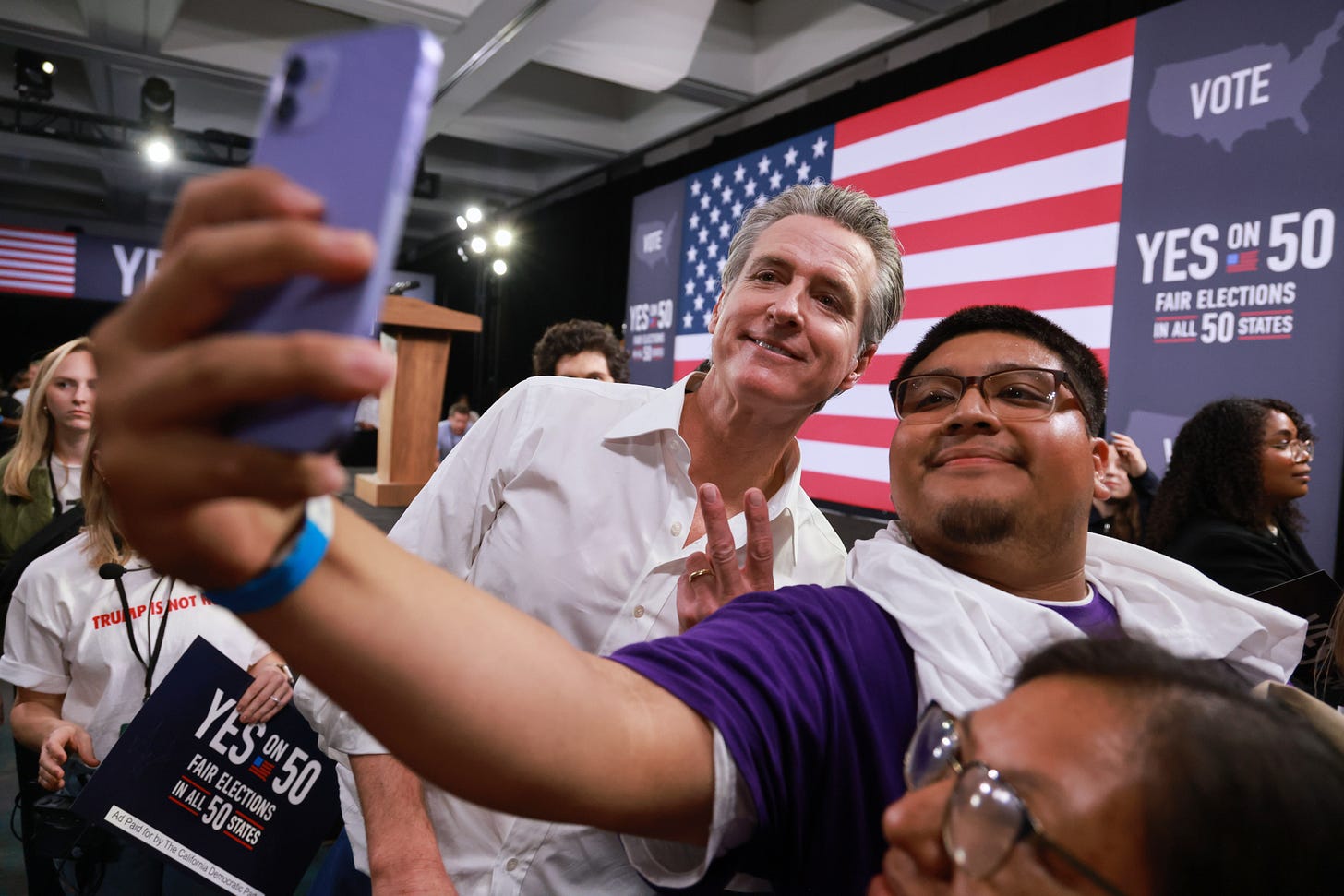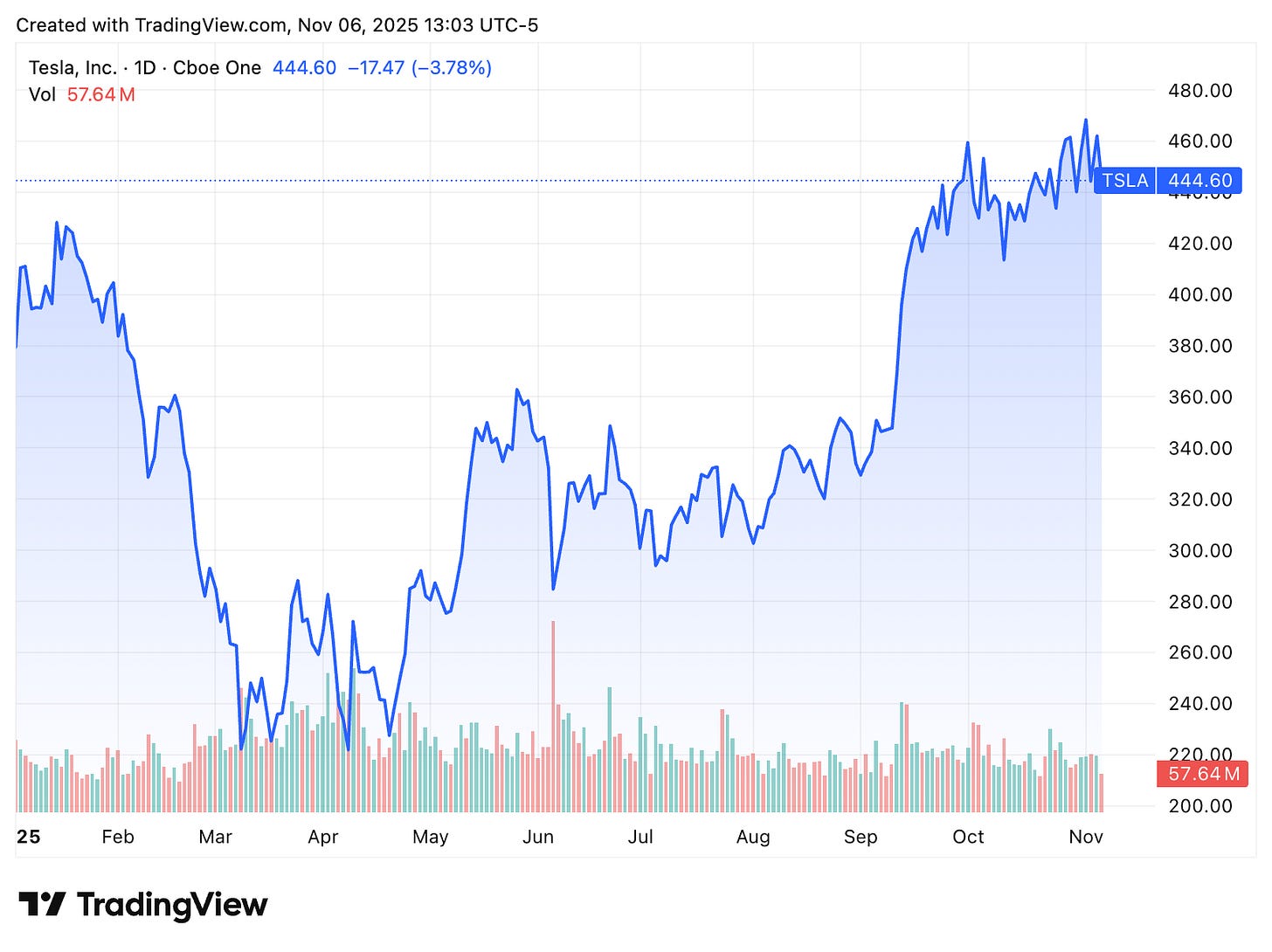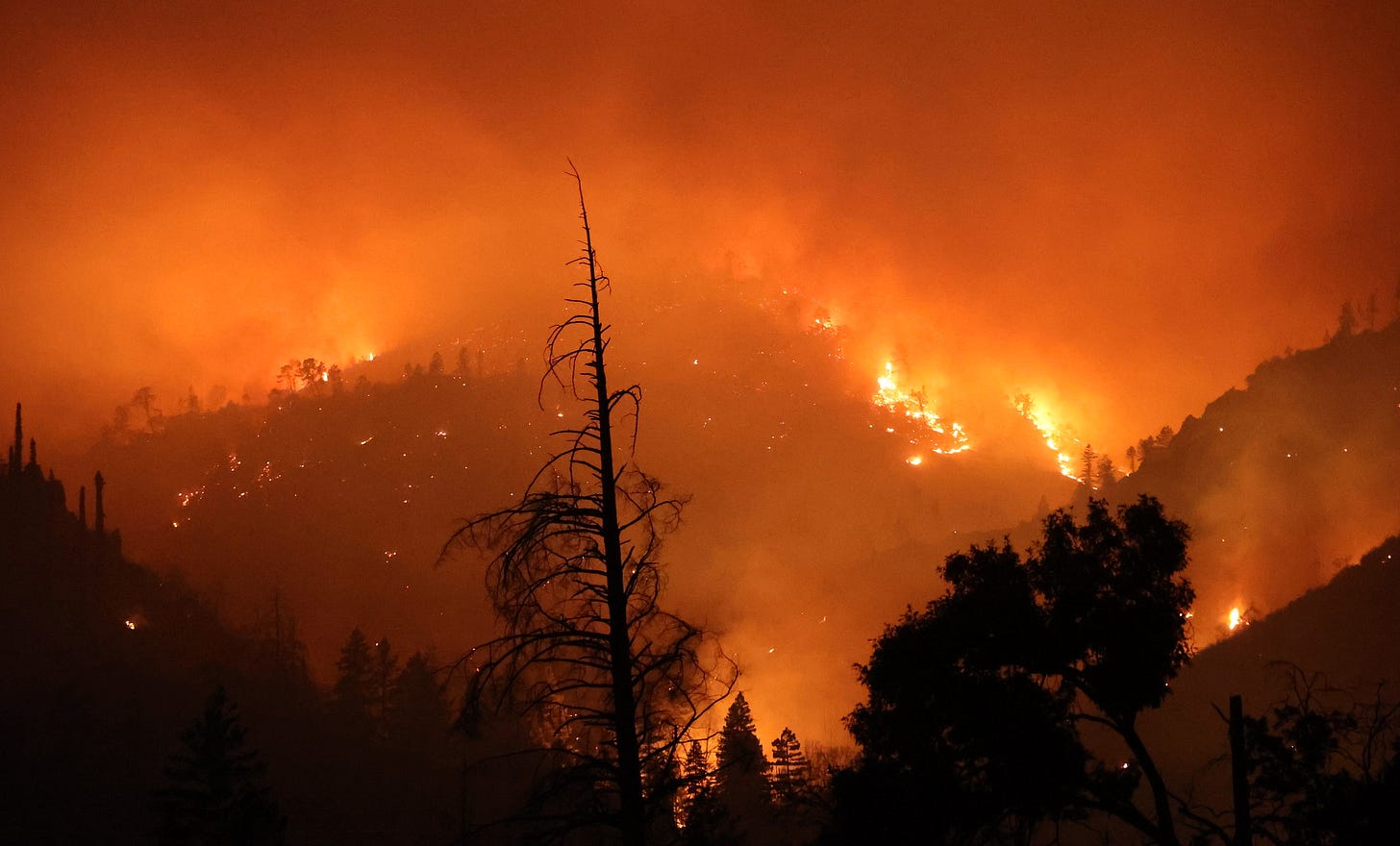European leaders arrive at COP30 with little to offer
Welcome to Callaway Climate Insights, your daily guide to global climate finance. Was this newsletter sent to you? Please enjoy and subscribe.
Today’s edition of Callaway Climate Insights is free for all our readers. We really want to bring you the best and latest in climate finance from around the world. Please subscribe now.

The leaders of the UK, France and Germany all arrived in Brazil with great ceremony for the United Nation’s historic climate summit this weekend, COP30. But at a time when global leadership on climate efforts is sorely needed, they had little to offer.
UK Prime Minister Keir Starmer was in attendance for Prince William’s awarding of his annual Earthshot prizes and will do his best to be a climate representative, but reports are already circulating in London this morning that the UK will not contribute to Brazil Prime Minister Luiz Inacio Lula da Silva’s signature effort to establish a fund to help protect rain forests.
European countries were able to cobble together an agreement to bring as a climate pledge to cut harmful greenhouse gas emissions by 90% by 2040, but once the pomp and circumstance is over, they still have to push it through an increasingly reluctant EU parliament.
The slow start to COP30 — on the 10th anniversary of the historic Paris agreement to keep emissions below a certain level — is an ominous sign for a conference that is expecting low attendance from global leaders and almost no attendance from Wall Street, which has largely moved on to AI and energy security.
But underneath the gloom, there are a lot of deals to be announced. California Gov. Gavin Newsom, fresh off his Election Night victory in California’s redistricting vote, will be there to step into U.S. limelight left unattended by members of the Trump administration. And the entire conference comes against a backdrop of surging renewable energy stocks, as investors realize no AI goals can be reached without every source of energy possible.
Sure, everyone expects U.S. President Donald Trump to try to savage the summit from afar. But despite the early lack of deals, the presence of European leaders, Newsom and other climate supporters show that the battle to mitigate global warming will continue without him. More highlights from COP30 next week.
Don’t forget to contact me directly if you have suggestions or ideas at dcallaway@callawayclimateinsights.com.
Follow us . . . .
Twitter | LinkedIn | Facebook | Instagram
Zeus: Eggs, electricity, Gavin Newsom and the new climate investor play

. . . . Turns out eggs still matter. And electricity prices. That’s the message from the Democrat’s romp in local elections this week, from California and Virginia to New Jersey and New York City, writes David Callaway. Democracy was on the table, but the biggest issue was electricity prices in the face of the tech arms race to build AI data centers, illustrating how climate change can be a priority issue even if we’re not talking about decarbonization. It’s still all about green energy. As the dust settles, the Dems will now look out to the midterms in 2026, and to whether California Gov. Gavin Newsom’s direct attack on White House forces with his redistricting counterattack can carry him to a nomination in 2028.
Thursday’s subscriber insights

Tesla’s shareholder vote on Elon Musk pay package — and flying cars
. . . . By most accounts, Tesla TSLA 0.00%↑ shareholders have had a good year so far, despite plunging sales in Europe and political fallout from Elon Musk’s moonlighting as a government operative. Shares were up more than 10% year-to-date heading into the company’s annual meeting later today.
But the rest of the year hinges on the shareholder vote to approve the board’s proposed pay package for Musk, which with incentives and certain goals reached could exceed $1 trillion over the next decade. While Tesla shareholders have a reputation for being among the most loyal to a celebrity CEO, Musk’s performance this particular year means the vote could be closer than the average
board-stamped proposal.
At least one major shareholder, the Norwegian sovereign fund, has said it will vote its $11.6 billion stake, or about 1.14%, against the pay package. The fund has voted against Musk’s pay before, so there might be little surprise there. But if other large funds shift with it, Musk’s future days at Tesla could be numbered.
Musk has threatened shareholders that without the pay assurance he might drift into something else, although his current pay package hasn’t stopped him to date from doing exactly that. And with Tesla shares plunging in Europe — down by a third to half in some countries in September — institutional shareholders might decide the time to call him on the excessive pay is now.
As always with Tesla, it will come down not to the big institutions, but the thousands of smaller shareholders who identify its success and their profits with Musk. If he can tap into them, he might have a chance. He gave it his best attempt earlier this week, hinting that a Tesla flying car may be closer than people think. If that doesn’t get them, nothing will.
Editor’s picks: Why AI needs so much water; plus, concerns over climate change grow in middle-income countries
Watch this video from the BBC World Service: More than a billion messages are sent to AI chatbots every day and each interaction uses water. There are concerns artificial intelligence is putting stress on drinking water sources. Here, we explain why AI uses water and how even more will be needed in the future.
Climate change is affecting middle-income countries
A new study from Pew Research shows about 74% of adults in middle-income countries say global climate change is affecting their communities and are worried it will harm them personally at some point during their lifetime. Droughts and water shortages are the greatest concern in nearly all countries surveyed. Since 2015, people in several countries have grown more concerned about droughts and rising sea levels but less concerned about floods and intense storms. In India, Indonesia, Mexico and Turkey, younger adults are more likely than those ages 50 and older to be concerned about global climate change harming them personally. For instance, 86% of Mexican adults under 35 express this concern, compared with 77% of their older counterparts. (In India, older adults were less likely to answer the question.)
Latest findings: New research, studies and projects
10 new insights in climate science
As UN climate change negotiations begin in Brazil, the World Meteorological Association spotlights a new report it says delivers “a stark assessment of the planet’s climate and an urgent call to step up global action.” The report, titled 10 New Insights in Climate Science, synthesizes the latest peer-reviewed findings from across disciplines to inform international climate policy. This year’s edition draws on contributions from more than 70 researchers in 20 plus countries and input from over 150 experts worldwide. It was produced by Future Earth, The Earth League, and the World Climate Research Programme. WMO is one of the co-sponsors of WCRP. Some of the insights in the report include record warming in 2023 and 2024, accelerated ocean warming, increasing strain on land carbon sinks, declining ground water levels and climate driven disease outbreaks. The report “underscores that effective, equitable, and science-informed policy remains the most powerful tool to safeguard both people and the planet,” the WMO said. The full report will be presented at COP30 in Brazil.
Words to live by . . . .
“It’s not a choice between our environment and our economy; it’s a choice between prosperity and decline.” — President Barack Obama.



